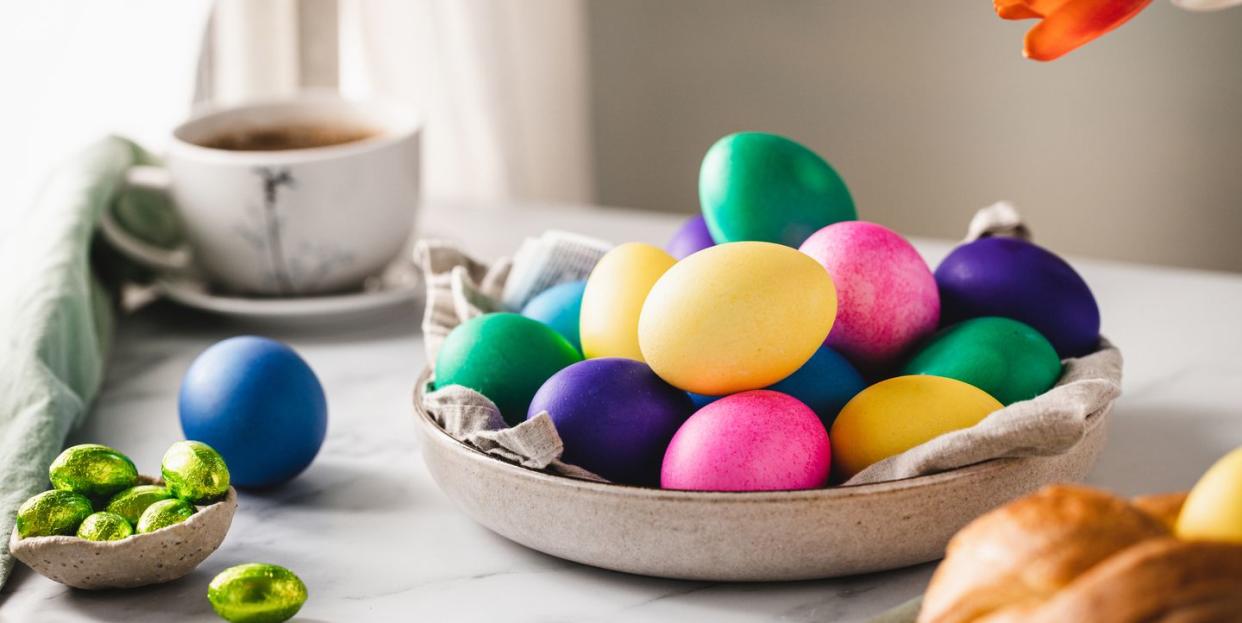What You Should Know Before Eating Dyed Easter Eggs

Aside from all the candy, one of the hallmarks of Easter is the colorful eggs. While dyeing Easter eggs is a fun family activity, you may be wondering whether it's safe to eat them after they're dyed. After all, you can't let all those hard-boiled eggs go to waste. Before you reach for one on Easter, there are a few safety tips to keep in mind.
First, if you plan on eating your Easter eggs, you're going to want to make sure you use food-safe dye, like food coloring. And you can make your own food-safe dye right at home with this guide from McCormick. All you need is boiling water, a bit of vinegar, and food coloring.
Aside from the dye, the real issue comes down to how the eggs are stored. Once they're cooked, you should put them in the refrigerator within two hours and eat them within seven days, according to the USDA. So if you're planning on leaving your dyed Easter eggs out on display as part of your Easter decor, you shouldn't eat them. They would, however, be a great addition to an Easter brunch table—that is, if they're eaten within two hours.
The USDA also doesn't recommend using the eggs for Easter egg hunts because they can crack and pick up bacteria, but if you do, they should be washed and refrigerated.
If you do decide to eat those hard-boiled eggs, we have some recipe ideas to put them to good use. Deviled eggs make a great Easter appetizer, egg salad makes for an easy lunch, and you can always chop them up and sprinkle them into a Cobb salad.
You Might Also Like

